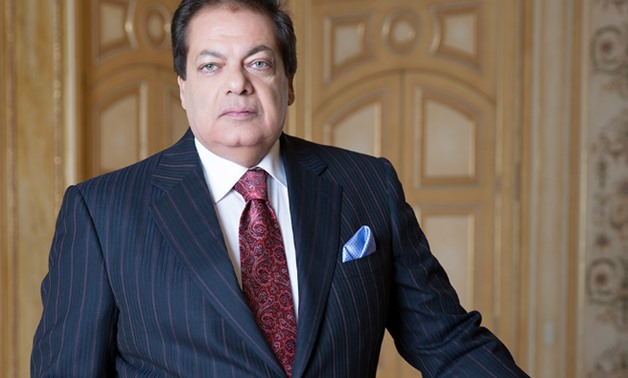
FILE – Mohamed Aboul Enein – Wikimedia/Cleopatra Group
CAIRO – 7 November 2018: High-profile Egyptian businessman Mohamed Aboul Enein was granted the 2018 Mediterranean award for economy and international diplomacy.
Aboul Enein, honorary chairman of the Parliamentary Assembly of the Mediterranean (PAM), is considered the second Egyptian to win the Mediterranean Foundation's prize after novelist and noble prize winner Naguib Mahfouz won it in 2003, said President of the Mediterranean Foundation Michele Capasso.
Aboul Enein was chosen by representatives of 42 countries, as one of the World's most prominent figures economically, politically and socially, Capasso said, adding that Aboul Enein's efforts managed to bring the people of the Mediterranean closer.
Capasso also lauded Aboul Enein's diplomatic efforts in addition to his efforts in promoting human fundamental rights, peace and acceptance of the other.
In October, Aboul Enein won the Stella al Merito sociale 2018 award from one of Italy's largest social organizations, Culture and Solidarity Foundation.
The Mediterranean Foundation's award was won by former US President Barack Obama, Sheikh Sabah al-Ahmad of Kuwait, former UN Secretary General Ban Ki-moon، Palestinian President Mahmoud Abbas, and late King Hussein of Jordan and former Spanish King Juan Carlos.
Mohamed Aboul Enein, 67, graduated from the Helwan University's Faculty of Commerce. Constructing Egypt-based Ceramica Cleopatra company, Aboul Enein became one of the prominent leaders of the ceramic industry in the country.
He has been a leader in mega project investments in Egypt, including a 7,500 acre wheat farm in East al-Owinat and North West Gulf of Suez, producing ceramic products to 108 countries worldwide.
Thanks to Aboul Enein, thousands of Egyptians have been employed, after he contributed to transform a considerable part of Egypt’s deserts and coasts has been transformed to industrial institutions, tourist facilities, and agricultural areas.
Comments
Leave a Comment